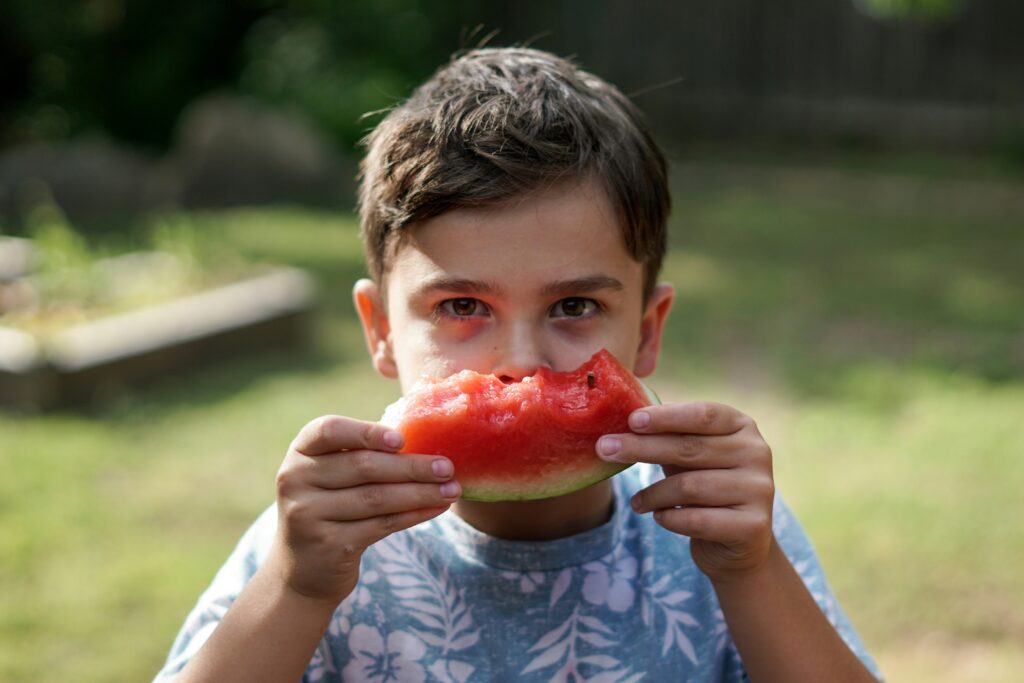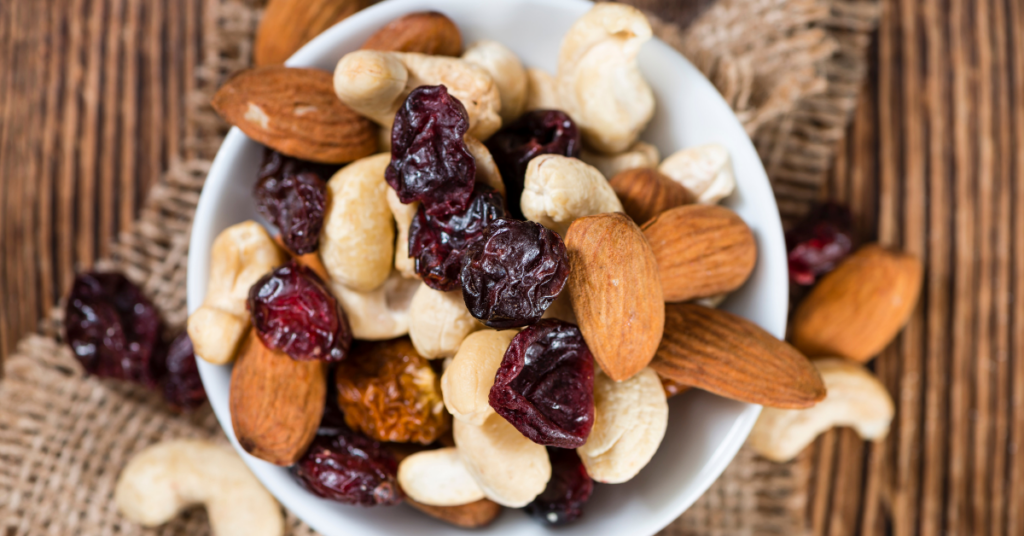
Article at a Glance:
- Swapping animal products for minimally processed plant-based foods can provide many benefits, from health impacts to supporting a more sustainable agriculture and improving animal welfare.
- There are nutritional considerations when going plant-based to ensure you and your family obtain adequate nutrients for growth, development, and overall health.
Plant-based diets are growing in popularity due to their health benefits, positive impact on the environment, plus the impact on animal welfare. People choose to opt for an animal-free eating pattern for various reasons – they may be animal lovers or want to reap the benefits of eating more plants. But, are plant-based diets truly better for families and children? Read on to learn exactly what a plant-based diet is, the pros and cons, and if it’s the right choice for you and your family.
Understanding Plant-Based Diets
A plant-based diet is an eating pattern focused on whole, minimally processed plant foods, while reducing or eliminating animal products. “Plant-based” is a flexible term that means plants are the primary foundation of the diet. This differs from a vegetarian diet, which completely excludes meat, poultry, and fish. Or a vegan diet, which eliminates all animal products and foods produced from animals, such as eggs and milk.
The core components of a plant-based diet are fruits, vegetables, legumes, whole grains, nuts, seeds, and herbs and spices. Some people may still include certain animal products, such as small amounts of dairy, eggs, and occasional fish and meat. This eating pattern emphasizes a diet rich in whole, minimally processed foods and avoiding ultra-processed packaged foods.
Nutritional Benefits for Kids and Families
As with any minimally processed whole food eating pattern, there are many health benefits to a plant-based diet. For starters, a diet void of animal products significantly lowers the saturated fat content. A diet high in saturated fats has been linked to elevated cholesterol and cardiovascular disease; therefore, lowering intake of this type of fat can have a positive impact on heart health.
Plants are also rich in fiber, which is an essential component to a healthy diet. Not only does fiber feed healthy gut bacteria, promoting a balanced gut microbiome, it also helps balance blood sugar levels, supports healthy digestion, and can even help with weight management.
What’s more, plants also provide a plethora of vitamins and phytochemicals, offering powerful health benefits. Phytochemicals give plants their vibrant colors and help ward off pests and UV damage.
And they’re not just benefiting the plant—when consumed, they can help reduce chronic inflammation, which is linked to many health problems such as diabetes and heart disease. Phytochemicals also help prevent cellular damage from free radicals, which helps lower the risk of cancer.
The host of nutrients delivered through plants can help reduce the risk of childhood obesity, type 2 diabetes, and heart disease.
Nutrient Considerations
Now before ditching all animal products and diving headfirst into a plant-filled diet, it’s important to consider key nutrients that may be less plentiful without the help of animal-based foods.
Protein
Most animal-sourced proteins provide a higher quantity of protein per ounce than plant-based foods. In order to obtain a sufficient amount of protein, it’s important to include high-quality plant-based proteins at each meal and snack, when possible. Here are plant-based proteins to consider:
- Legumes (beans, lentils, peas, and soybeans like tofu, tempeh, and edamame)
- Quinoa
- Seeds (hemp, flax, pumpkin, and chia)
- Nuts (almonds, cashews, and pistachios)
Iron
This essential nutrient helps carry oxygen through the blood to vital cells throughout the body. Iron supports energy production, immune function, and is essential for growth and development. There are 2 main types of iron: heme iron (found in animal products) and non-heme iron (found in plant foods).
Non-heme iron is less bioavailable and not absorbed as well as heme iron, therefore, you need to be sure to include a sufficient amount of iron through your diet and pair it with vitamin C-rich foods for improved absorption. Here are some iron-rich plant foods to include:
- Lentils
- Tofu
- Chickpeas
- Black beans
- Spinach
- Pumpkin seeds
- Quinoa
- Oats
Vitamin B12
This B vitamin is essential for red blood cell formation, DNA synthesis, and energy production. Vitamin B12 is produced by bacteria and typically found in animal digestive tracts, which is why it’s harder to obtain through a plant-based diet devoid of animal products.
A vitamin B12 deficiency can lead to fatigue, memory loss, and nerve damage. If you don’t consume animal products, it is essential to take a vitamin B12 supplement. You can also include these foods in your diet:
- Fortified nutritional yeast
- Fortified plant milks
- Fortified meat alternatives
Omega-3 Fats
Omega-3s are essential fats that need to be obtained through our diets. These fats are crucial for heart health, brain function, eye health, and helping to lower inflammation. There are 3 types of omega-3 fats—ALA, EPA, and DHA. The latter 2 (EPA and DHA) are primarily obtained through fatty fish and provide the direct benefits listed above.
Whereas, ALA can be obtained through plant foods but then needs to be converted in the body to EPA and DHA. Since this conversion from ALA omega-3s is limited, it’s important to consider an omega-3 supplement if you are fully plant-based. You can also include these plant-based foods in your diet:
- Chia seeds
- Flaxseeds
- Hemp seeds
- Walnuts
Calcium and Vitamin D
Calcium is crucial for bone health and maintaining strong teeth. It also plays a role in nerve transmission, muscle function, as well as blood clotting. If you don’t get enough calcium from your diet, your body will pull it from your bones, where it’s stored.
Vitamin D is a crucial complement to calcium as it helps enhance calcium’s absorption. Vitamin D also supports immune function and plays a role in mood regulation. When following a plant-based diet, here are some foods to include to help get enough calcium and vitamin D.
Calcium:
- Fortified plant milks
- Collard greens
- Kale
- Bok choy
- Sesame seeds and tahini
- Almonds
- Chia seeds
- White beans
Vitamin D:
- Fortified plant milks
- Mushrooms
- Sunlight! (10-30 min a day)
Note that for many people, adding a vitamin D supplement is also necessary to meet their needs. Before adding a supplement, have your vitamin D levels checked by your healthcare provider with a simple blood test. This will determine whether a maintenance dose is sufficient or if you have a deficiency to correct first.
Zinc
An important trace mineral, zinc supports immune function, wound healing, DNA synthesis, and appetite regulation. Though you can obtain zinc through a plant-based diet, it is less bioavailable in plant foods due to phytates, which are a substance in plants that inhibit absorption.
Eating a variety of plants throughout the day can help your body get enough of this mineral without the addition of animal products. You can also enhance the absorption of zinc by soaking seeds, legumes, and grains ahead of consumption. Here are some foods to include for zinc:
- Pumpkin seeds
- Hemp seeds
- Chickpeas
- Lentils
- Tofu
- Quinoa
- Oats
- Cashews
Practical Tips for Families
If you’re considering leaning into a plant-based eating style and bringing your family along for the ride, here are some practical tips to make the transition seamless.
- Start by introducing “Meatless Mondays” (or any day of the week) and use that day to introduce new plant-based dishes to your family.
- Take your family’s favorite dishes and make simple swaps for plant foods. For example, try cauliflower buffalo wings in place of chicken or black bean tacos instead of beef.
- Involve your kids in the shopping and cooking so they feel included, and teach them about the benefits of eating more plants. You can take it a step further by planting a small garden and involving the whole family in the growing and harvesting of plants.
- Take it slow and don’t feel like you need to ditch meat overnight. The more plants you introduce, the better, but it doesn’t have to be all or nothing.
Environmental and Ethical Considerations
An added benefit of swapping meat for plant-based proteins is the positive impact on the environment as well as animals. You can teach your family about the sustainability of these food choices to help them understand the benefits and feel empowered with their food choices.
Plant-based diets generally have a lower carbon footprint since they don’t contribute to greenhouse gas emissions like animal agriculture does. Plant foods require less water than meat production, and there’s also less pollution.
Lastly, one of the top reasons individuals stop eating animal-based foods is to help reduce animal suffering, and is a big consideration for those wanting to swap out animal foods for more plants.
Debunking Common Myths
- “Kids can’t grow well on plant-based diets”: Research shows that plant-based eating can support growth and development just as well, if not better, than an omnivore diet. One study involving almost 9,000 children found that those following a plant-based diet had comparable BMI, height, iron levels, and vitamin D levels to their meat-eating peers. It’s important to note that proper planning and attention to nutrient intake are important to ensure adequate growth and development.
- “Plants are an incomplete protein”: Although some plant proteins are limited in one or more essential amino acids, as long as you consume a variety of plants throughout the day, you can obtain all nine. Focusing on whole, minimally processed, and quality plant-based proteins like beans, quinoa, nuts, and seeds can help ensure you get an adequate amount of protein for growth and development.
LiveComplete Takeaways
Swapping animal-based foods for more plants can offer powerful benefits for both you and your family. A diet rich in plant-based foods provides more fiber, essential vitamins, and phytonutrients—key nutrients that support healthy growth, development, and brain function in children.
While it’s important to be mindful of certain nutrients like iron, vitamin B12, and others when shifting to a plant-based diet, the health and environmental benefits are well worth it. Start by incorporating a few meatless meals each week. Involve your kids in choosing recipes, shopping, and cooking—it’s a fun, hands-on way to teach them where their food comes from and build lifelong healthy habits.
As with any major change to your family’s diet, be sure to consult a pediatrician or Registered Dietitian to ensure your child’s nutritional needs are fully met.
Sources:
- St. Michael’s Hospital. (2022, May 2). Study finds children with vegetarian diet have similar growth and nutrition compared to children who eat meat. ScienceDaily. Retrieved May 19, 2025 from www.sciencedaily.com/releases/2022/05/220502094813.htm



